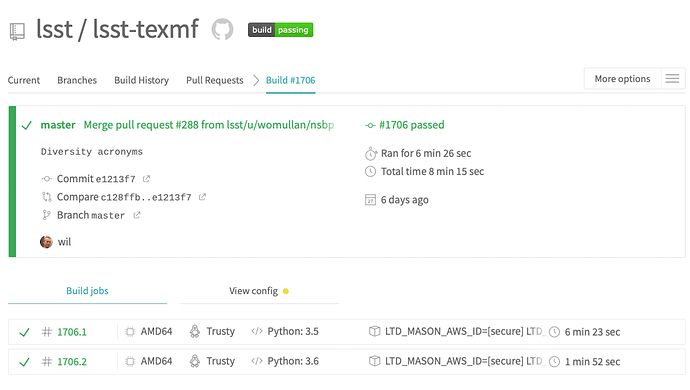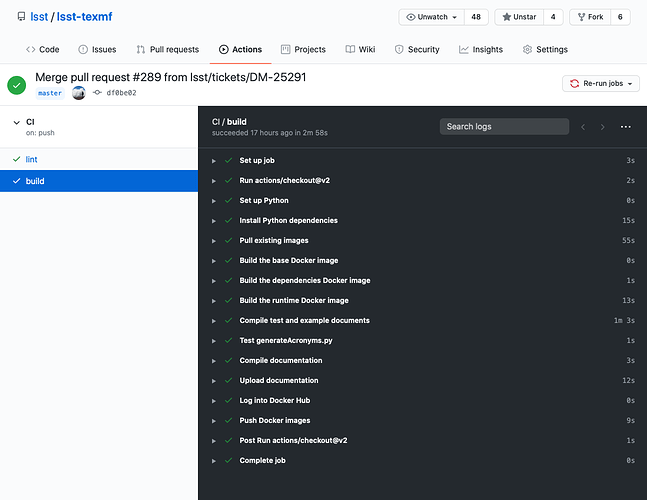Today we’re launching a revised lsst-texmf Docker image for compiling Rubin Observatory LaTeX documents that’s smaller, features Python 3.7, and builds faster.
Here’s a summary of the new features:
- By including Python 3.7 in the Docker image, your document’s
makebuild can now run Python scripts. These scripts can be any of lsst-texmf’s built-in scripts (such asgenerateAcronyms.pyanddb2authors.py) or your own scripts included in your document’s repository. If your script needs third-party dependencies, you can PR it into the Docker image through a requirements.txt file. - We’ve reduced the Docker image size from 3.5 GB down to about 2 GB thanks to a more careful curation of texlive packages and by not installing texlive documentation.
- The lsst-texmf repository’s CI is now much faster for two reasons. First, we switched to GitHub Actions. Second, we cache a base image for a multi-stage Docker image build so that CI doesn’t need to
apt-get installthe full suite of texlive packages every time. The base image is refreshed on a weekly basis.
We’ve tested this new Docker image on a range of Rubin Observatory documents. If you notice that your document doesn’t build, though, let us know and we can make the necessary adjustments.
For more information about compiling LaTeX documents using the lsst-texmf Docker image, see our documentation.

